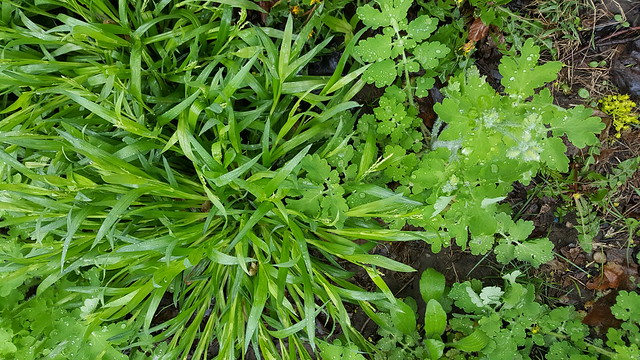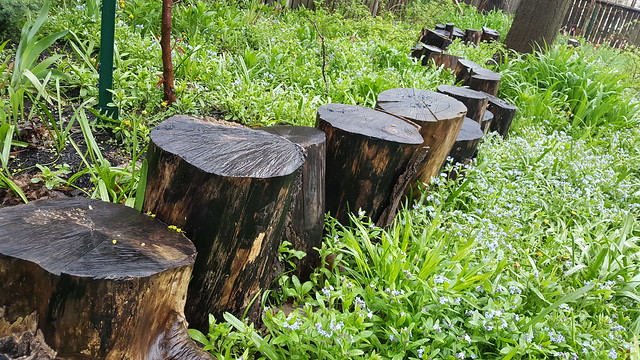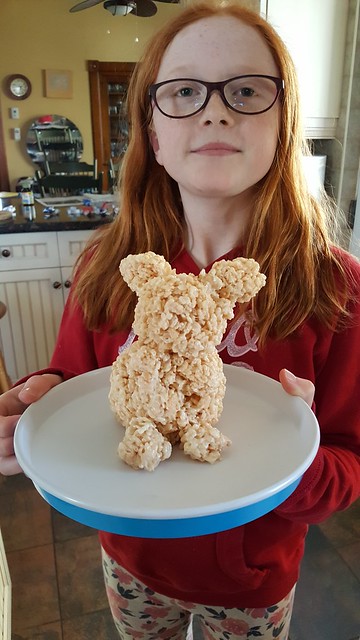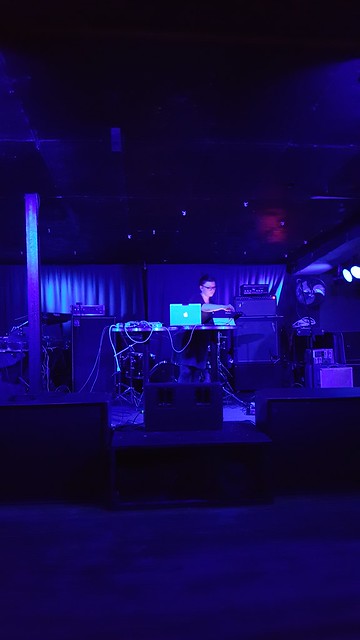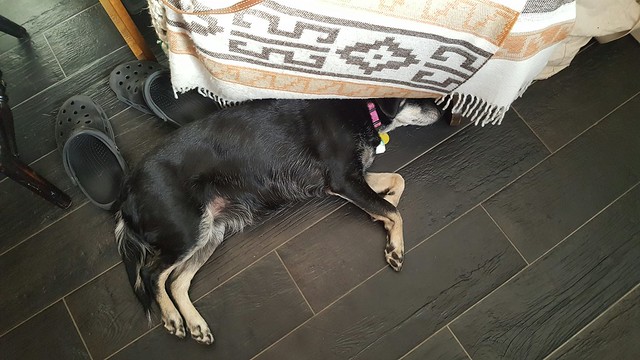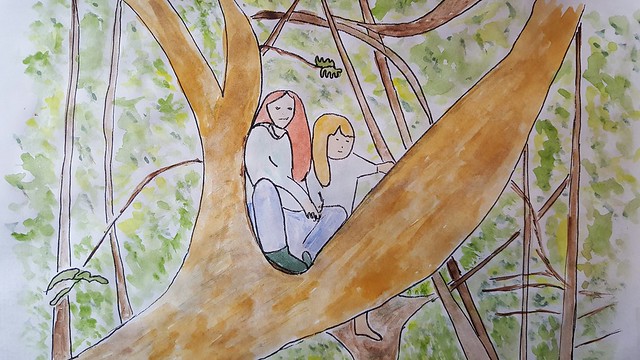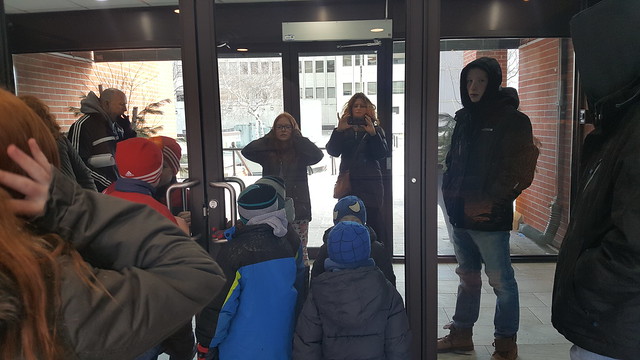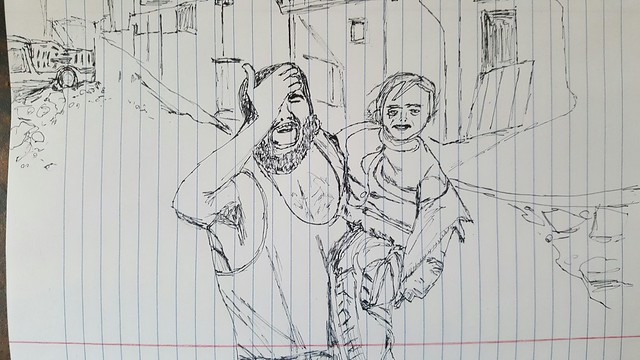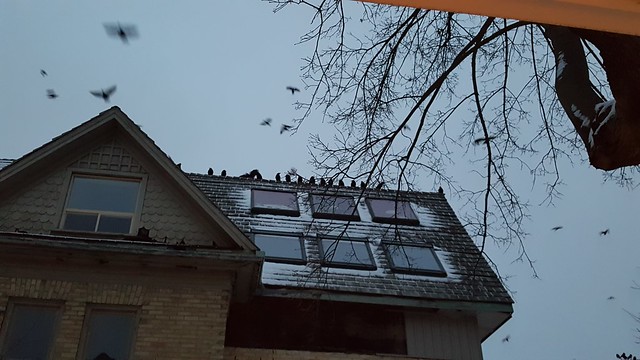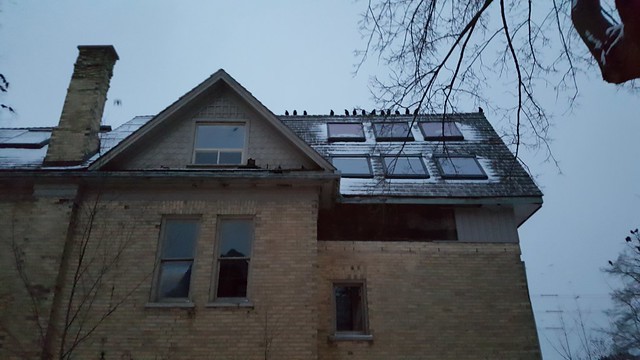Category: Stand
Wednesday, May 10, 2017 | Big Thoughts, Confessions, Family, Mothering, Parenting, Spirit, Stand, Weather |

On acceptance.
The deeper I get into this current phase in my life — call it middle age, maybe — the closer I come to an understanding of what it means to be at peace with all these elements and circumstances within a life that cannot be changed. So much that envelopes me right now can’t be shifted. Some things are consequences of choices I’ve made and responsibilities willingly adopted. But others are like the weather — unpredictable and impossible to alter by will or imagination or self-deception.

If it’s raining, it’s raining. You can bring an umbrella and wear rain boots, and that will help, but you can’t by prayer or wishful thinking or desire alter the fact that it is raining. Sometimes you didn’t know it would be raining and you don’t even have an umbrella. This happens too. So life is often about rolling with what’s coming at you — the unexpected — and often it’s the hard kind of unexpected, not the exciting kind.

People you love will suffer, do suffer — and you will suffer when someone you love is hurt or sick or struggling, especially when you feel responsibility of care. There isn’t a solution to this. You can’t not love just because you will suffer too, in loving others in their suffering. Love is love. You have to accept that you can’t fix everything. You have to know what makes you feel comforted, what brings you peace and hope and even joy, and you have to do those things as often as you can. And you have to be prepared to change course quickly, to let the shape of your expected day be shifted by what is happening before you. Resistance in this regard is worse than futile — it will become resentment so fast.

If you can do this, even at the end of a challenging rainy day, you may find yourself saying, This was a good day. Because it was.
xo, Carrie
Friday, Apr 14, 2017 | Art, Big Thoughts, Good News, Spring, Stand, Teaching, Writing |

This is my 1500th post since launching my blog, nearly nine years ago. Today is a gorgeous spring day, and I am spending part of it indoors, writing, which is just where I want to be, in fact. This morning, a cardinal visited the bare branches of a small tree outside my window, a bright little jewel dancing and holding my attention, until he flew away. Friends invited us for an impromptu lunch. It’s a holiday and it feels like the weekend, only more relaxed. Across the street, there are police visiting the neighbours, but I don’t detect any violence, no shouting. When we walked by earlier, the neighbours were sitting in a patio area behind the small apartment complex, and it looked like they were having a meal together. People are outside.
I might have a small sunburn. My fingers are getting warmed up on the keys.

Last night I went to my sister Edna’s show. She made music that was like a soundtrack for a movie inside my head. I closed my eyes and the half hour vanished, fed by beats that rumbled up through the floorboards and through my whole body, a soundscape that produced vivid images in my mind. Mostly images of war, but I think that’s because of what’s happening not so covertly in a number of countries which Donald Trump (or his generals) have deemed evil. How many beautiful children of God were incinerated when a bomb the size of a bus was dumped into the wilderness of Afghanistan, its burn radius a mile wide? Yesterday, I waited with my Syrian friend at a bus stop and we talked about two homeless men we’d seen asking for change, sitting on the sidewalk as we walked by, and she said in Lebanon there were Syrian children at every stoplight crowding up to cars, begging, or trying to sell a single tissue at a time from a box of Kleenex. Small children, this high, she showed me. I saw the same sight when we visited Nicaragua a decade ago; I remember. I could not think what to say, except, That is so sad. I felt the shame of a response so wholly inadequate. As if I could fix it, as if there were an adequate response. I did not give change to the men sitting on the sidewalk, but, I told my friend, sometimes I do. Sometimes yes, sometimes no. Same, same. Does it make a difference? I did not say this last part out loud.
There are too many things that infuriate and enrage me, so I choose not to think about them most of the time. Banks that seem to exist to make money for the wealthiest. A stock market that seems to exist to make money for those who know how to game the system. Corporate boards that seem to exist to inflate the already obscene salaries of the wealthiest. Corporations that traffic in the tools of warfare. Leaders who will never suffer for even their most craven and cruel decisions. The insulation of individuals due to privilege and extreme wealth. Why isn’t there a maximum wage? The furrow in my brow grows deeper.

I’ve had a good week. In addition to being asked to teach again this fall, I’m taking over the spring creative writing course at UW, something I’ve never done before. If I think about it too much, I’ll panic at the unexpected workload, but I wouldn’t have said yes if didn’t think it was manageable. Teaching is my version of a writing grant. Plus I get to work with young people. There’s an office on campus. A classroom. A big library. I can bike or walk to work.
No matter what happens, people need to get their stories out. Sometimes I think this is my life’s work: bearing witness, and helping others to bear witness. Bear witness, expel torment, see the red cardinal in the bare tree.
xo, Carrie
Wednesday, Mar 29, 2017 | Confessions, Family, Friends, Meditation, Spirit, Stand, Word of the Year |

Blank. I sit before the screen, blank. My thoughts are with people I care about, people I love, people who are facing an illness that everyone fears: cancer. Cancer is so much more prevalent than it once was, it seems. Or maybe cancer existed in greater numbers than was spoken of, once; there was a time when cancer marked a person with shame, though that makes no sense to me. Cancer used to be like Voldemort: a word too terrible to speak. People hid it, kept it secret. I don’t think that’s true anymore. Now, everyone knows someone who has cancer. Most of us probably have close friends or family whose lives have been changed by cancer. It’s a presence in our landscape, it’s almost a place. It has its own geography, its own language, its own time zone.
In my own life, cancer has visited people I love, people very close to me. One of my brothers survived childhood cancer. You’d never know it, now. But I’m sure he knows it. We know it. When he turned forty, it seemed like a dream, a wonderful ordinary dream. I thought about how many other children, treated in his era, were not so fortunate. I thought of the loss to their sisters and brothers and mothers and fathers and grandparents, aunts, uncles, cousins, friends.
Cancer opens question marks in a life. The unknown looms. What will happen? How long do I have? What do I need/want to get done here on earth? What’s urgent, what matters, and what’s superficial, what can I cast off? But the question marks are always there, have always been there, we’re just not thinking about them. I want to think about them. Life is precious. This is a statement both banal and cliched; and completely absolutely heartbreakingly true. Life is always precious. It seems all the more precious when we’re made aware of how fragile life is. Tough, but fragile. Because life isn’t ours to hold onto. Life is a gift. I think of this New Yorker story about super-rich tech men who are building bunkers in the American desert, preparing to survive nuclear war or some other human-made disaster, and I think: What arrogance, to imagine that you can control what will happen to you; what a waste of resources, splurged on the self. This is how you want to spend your numbered days? All the money in the world can’t buy you immortality. You are mortal, as we all are, you are made of flesh and blood.
So, what to do? What to do, sitting here, feeling blank, feeling angry, feeling afraid, staring at this screen, knowing most piercingly that life is precious, that today is precious, that this hour is precious? I don’t know, any more than anyone else. It is not only life that is precious, it is time, our measure of life. Time is a luxury. Time passes, and we pass through time. Today, I will bake a birthday cake for a nine-year-old. I’ve already wrapped a few carefully chosen presents for him. I’ve walked him partway to school. We hugged at home, but he did not want a hug when we said goodbye on the sidewalk. Today, I will write for awhile and draw for awhile. Today, I will play on a soccer field with a group of lively eleven and twelve year old girls. Today, I will eat cake and watch an excited boy blow out candles, make a wish, open gifts.
I will wish for presence given to the task at hand, each one in turn. Every minute, poured into the task of love and care, patience, devotion, hope, joy, even grief, even that. Whenever I am discouraged, I take a really deep breath. Whenever I am afraid, I take a really deep breath. Life is precious. Breathe deep. Life is a gift. Breathe deep. Right now, today, this hour, life seems like a wonderful and ordinary dream, for which I give thanks.
xo, Carrie
P.S. I want to add to these reflections after reading two obituaries in the Globe and Mail newspaper today, one about Penelope Reed Doob, a scholar of dance and literature, the other a personal memory about Richard Wagamese, a Canadian-Ojibway writer. Penelope Reed Doob was not only a scholar, but also did medical research, founding a company involved in finding a cure for HIV/AIDS in the late-1980s/early-1990s. “I wanted to save lives,” she is quoted as saying. “However, I eventually wondered what I was keeping people alive for. I thought that dance was one reason why people should enjoy life.” The piece about Richard Wagamese recalls his story about a librarian who helped him when he was homeless. “She opened the world for him. He told us that the librarian taught him to read, see, hear and feel through everything she introduced to him.”
What connects the dots between these thoughts and my reflection, above? To state that life is precious, that it is a gift, is the most obvious of observations. It’s almost too basic. Life must also be worth living—a worth that is felt and experienced. What makes life worth living? For Penelope Reed Doob, it was dance, it was art. For Richard Wagamese, it was also art, music, books, education. For me, it’s play, art, words, creating, sharing, good food, the list goes on and on. There is surviving and there is living. Living should not be a luxury, available only to the privileged or the lucky.
That is all.
Wednesday, Mar 22, 2017 | Art, Family, Stand, Word of the Year, Work, Writing |
 I love my blog most of the time. I love that it exists and that I can come here to pour out ideas and wonder and dream out loud. But my blog isn’t always useful or helpful. Sometimes it’s like a window on which I just want to pull the blinds.
I love my blog most of the time. I love that it exists and that I can come here to pour out ideas and wonder and dream out loud. But my blog isn’t always useful or helpful. Sometimes it’s like a window on which I just want to pull the blinds.
Sometimes, a simple old-fashioned journal works better. Or a walk with a close friend. Or family time.
“I don’t really know what you do all day, Mom,” said one of my children recently.
A few days later, there was a detailed discussion, involving all my children, on the subject of all the books I should be writing, mostly revolving around riffs on Girl Runner. Sequels, prequels, spin-offs. A great deal of laughter.
I got so depressed, I finally asked them to stop. It has been years since I’ve written a publishable novel. A person starts to wonder, you know.
The work goes on. It’s what I do all day.
This is not an uncommon story, to be sure.
“You have to be able to stand not knowing long enough to let something ALIVE take shape.” -Lynda Barry
I don’t know how long I can stand not knowing, but, aha!, there’s my word of the year, standing right there inside that sentence, firm and strong and useful, if a bit itch-inducing. It never occurred to me that I would or could use it in this way, but I can and will.
xo, Carrie
Tuesday, Mar 7, 2017 | Peace, Spirit, Stand |

To tell the truth, I don’t have a lot to say this morning. Yesterday, I came across a photo in the newspaper and felt like I had to respond to it. Because I can now draw, I drew it. I don’t even know how I would write about it. What are the limits of my imagination? The limits of my knowledge are vast. I don’t know the details of what is being shown, except that this photo was taken in Mosul, Iraq. All that seems certain is that these are two people, human beings, a father and his daughter, caught up in the horror of war, which is a man-made horror. “What is happening?” my youngest asked, when he saw this picture. “Their house has been bombed,” I said. “Who bombed them?” But I don’t even know that. According to the caption on the original photo, they live in Islamic State territory, so maybe they’re being bombed by whoever is fighting against Islamic State. Where is evil, in this picture? Where is the enemy? Why is it so easy to destroy, to reduce a building to rubble, to displace lives?
And the question I am most afraid to ask: How is our safety and security linked to this picture?
Propped on my desk right now is a little card on which I’ve written out the Ten Tenets of the City of Joy (I read the Ten Tenets in a newsletter from the Stephen Lewis Foundation, a charity I support). The City of Joy is a residence in the Democratic Republic of Congo that serves women who are survivors of sexual violence (rape is used as a weapon of war in a many conflicts, including in the DRC). You can read more about the City of Joy here.

The Ten Tenets give me something concrete to hold on to when I am feeling despair. Right now, I’m drawn to # 6: Give what you want most. And # 10: Practice kindness. But let me push this reflection further — I am not a victim of violence or a survivor of war. I am, in many ways, the beneficiary of the misery of others; the systems that work for me create disadvantage and disaster for others. And I don’t know how to change that. What would I be willing to sacrifice? I’d like to add one more tenet for myself. # 11: Listen.
xo, Carrie
Wednesday, Mar 1, 2017 | Adventure, Big Thoughts, Confessions, Dogs, Feminism, Friends, Spirit, Stand, Word of the Year |

Just realized why this morning is feeling emptier than usual. For the past couple of months, I’ve spent Wednesday and Thursday mornings tutoring a new neighbour in ESL, and as of Monday, she’s attending formal ESL classes, which was always the goal. My intention was only to tide her over while she waited to get into the program.
Last week, we spent Thursday morning walking and riding the bus together, so her new route to school would become familiar. The next day, I listened to The New Yorker’s fiction podcast; the February post is Junot Diaz reading Edwidge Danticat’s story “Seven.” At the story’s end, two characters, who are immigrants from Haiti, ride the bus together. The phrase that spoke to me was: trying to see through her eyes.
I spent Thursday morning trying to see through my friend’s eyes, and it seemed that although we moved through the same physical space together, what we saw and heard did not mean the same thing to both of us. I’ve been thinking about this a lot. How privilege, skin colour, gender, age, wealth, familiarity, health, past experiences alter the world as we move through it. We exist in relation to what surrounds us, and in relation to how we perceive and are perceived.
Here’s what I wrote after listening to “Seven.”
When I am with my friend, I feel as though I am almost wearing her skin, her headscarf, I feel the exposure and vulnerability of being a newcomer, unaccustomed to the weather, to the language, to what is safe and what is dangerous. As we walk along a sidewalk, I see she fears the big black dog whose owner clips its collar to a leash on our approach — she recoils as she passes the dog, politely pulled off the sidewalk by the owner, who says good morning. But she does not seem to fear the white man and woman who come toward us with dyed and shaven hair, who I fear might be skinheads. Instead, I recoil.
Later, as we arrange ourselves on the bus, it is I who stagger unsteadily to a seat, uncertain of my balance, while my friend stands braced against the stroller and a pole, concerned for me. Her face is tired. She has been in Canada for almost three months. I think suddenly, she is tough, tougher than I can guess, tougher than me. All this time, I have wanted to protect her, but as I see her now I am ashamed to have been so reductive. She has told me about the guns coming to Syria, bang bang. She has endured more than I can imagine. Even so, I recognize her anxiety as she tries to orient herself. I want to assuage it, to reassure her.
I tell her, This is the stop. I pull the line and stand. The men move out of our way to let the stroller by. I want to help her lift the stroller, but she doesn’t need my help. We begin to walk. She sounds out the letters on the building across the street: “Don McLaren Arena.” Yes, I say, ice skating. I mime ice skating. She laughs and I think she doesn’t understand so I continue to mime. She taps her head. What she’s trying to tell me is that she will remember “Don McLaren Arena” — this is her stop. Great idea! I stop ice skating and exclaim.
We walk in silence for awhile. I don’t want to fumble with my phone and Google translate in this bright sunshine. I see a man walking a big black dog, ahead, different man and dog. They are walking on a cross pass away from us. In Syria, dogs inside the house? I ask. She laughs, No! Brother, chickens, sheep, dog, she says. Outside. I tease her: Maybe someday, you will have a dog. In Canada, so many people have dogs and cats. No, no, no, she says. No dog, no cat. A bird, she says to me.
I can see her face, turned toward me, smiling, an objectively beautiful face, no makeup, clean and memorable. She is wearing a light-coloured headscarf.
A bird, I say.
A bird, she agrees. We walk past Tim Horton’s where she and her husband have come to buy coffee and roll up the rim to win. He won another coffee. She was hoping for a car, a TV. But just a coffee. No one wins the car, I tell her. She tells me that a little dog scared their daughter, who is five, who began to scream in fright, and the dog’s owner, a woman, picked up the dog and held it in her arms. It was okay? I ask. It was okay.

My friend is opening up the world to me. I see that I can’t see through her eyes, though I try, though I want to. I can only walk beside her, often in silence. Wondering what this place looks like through her eyes. Is it ugly or beautiful? Welcoming or closed? Is it safe or dangerous? Is it home? Could it be home? Everything looks both brighter and starker when I’m walking beside her. There is a clarity to the light, and a barrenness, as if the objects and structures are being stripped back to their bones.
The light is bright for February, and we are warm. Even my friend, wrapped in her black coat, always cold, admits that she is now warm. The baby starts to fuss as we near their apartment. I don’t want to say goodbye. It seems I receive as much from her friendship as she could possibly receive from mine, because I enjoy her company, because I am happy when I am with her, more curious, more alert, more aware, because even a bus ride feels purposeful, somehow, when I’m trying to see through her eyes.
xo, Carrie
Page 10 of 11« First«...7891011» 

